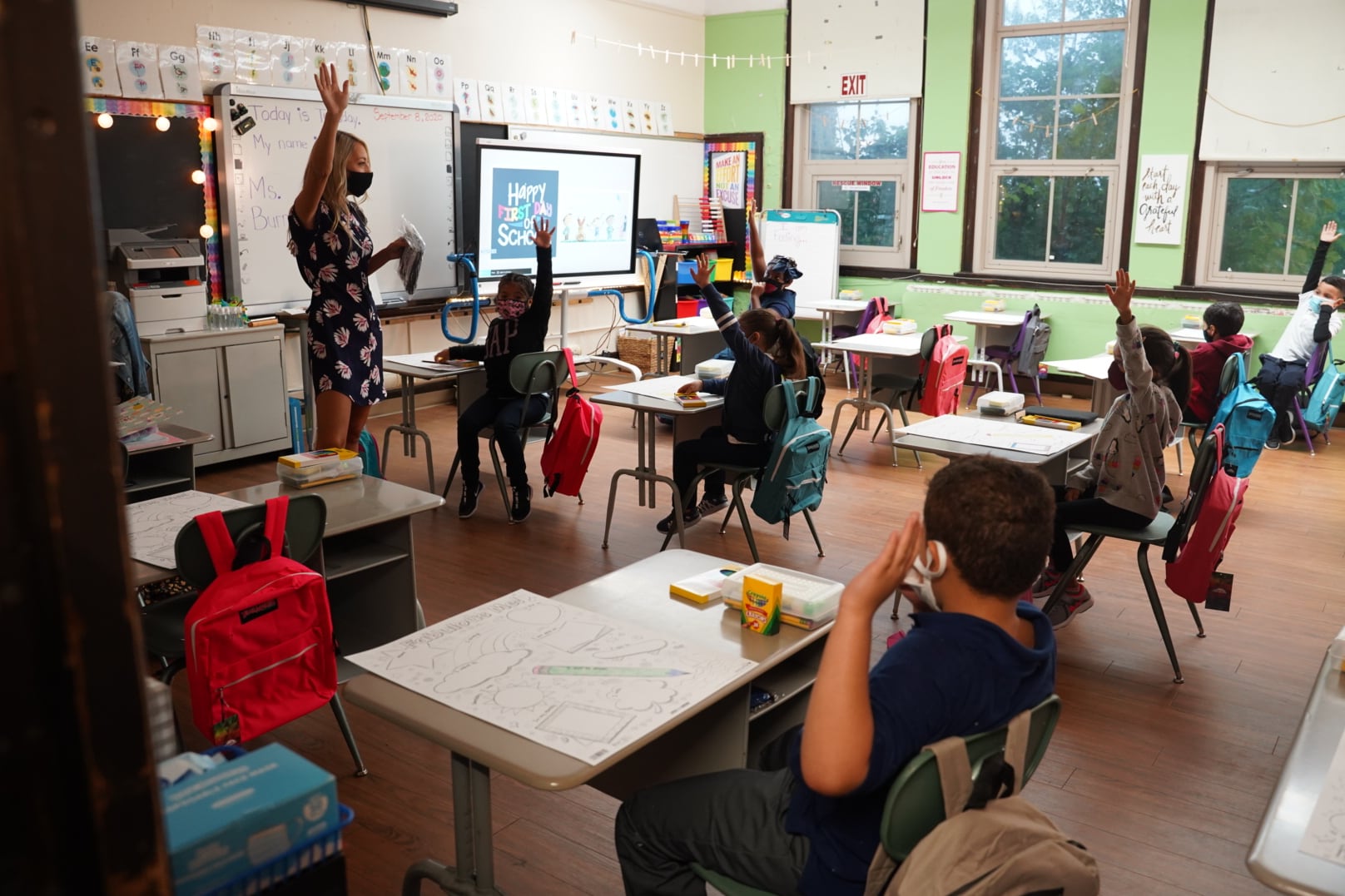The Detroit school district will reopen its learning centers Feb. 24, giving students learning online a safe, supervised space to learn during the day. But the district is pushing the return of face-to-face classes until the middle of March.
The in-person classes include face-to-face instruction from a teacher in a classroom. Learning centers house virtual learning classes inside a school building.
The Monday news comes after the Detroit Public Schools Community District suspended in-person classes and the learning centers in November because of rising COVID-19 cases. It also comes as Gov. Gretchen Whitmer urges schools to provide a face-to-face learning option for students by March 1.
The district had operated learning centers in all its buildings when the school year started. In those centers, students learn virtually, but they are under the supervision of support staff and school administrators. The centers have helped parents who work during the school day or are otherwise unable to supervise their children’s learning.
“Through our home visits and outreach to families and students, we know too many families and students are struggling with schools closed,” Superintendent Nikolai Vitti said in a statement Monday, reiterating a concern he raised during a school board committee meeting last week. He said then that school officials conducting home visits were finding some students learning at home with no supervision.
Vitti also raised concern about a significant drop in attendance for learning center students.
He has been a strong proponent of offering an in-person learning option for students. The district said earlier this year that in-person classes would begin again in early to mid February. The district did not say why the restart won’t happen until March, but said in a statement that it is committed “to resuming in person learning with teachers once the city’s positive infection rate is solidly below 5%.’
How far below 5% is unclear. The statement noted that the city’s “seven day positive rate has remained near 5%, with daily rates falling below 5%.”
When in-person classes begin in March, the district expects more students and teachers to participate. Survey results show the percentage of teachers willing to teach face-to-face is now 40%, up from 20% in the fall. The percentage of families wanting in-person learning has grown from about 25% to 50%, Vitti said last week.
He also said that principals are working through schedules to see what can be offered at various grade levels. A lot will depend on the ability to match teacher preference with parent demand in individual schools. Some schools, for instance, may only have enough teachers to offer in-person classes at some, but not all, grade levels.
Teachers will be required to get tested for COVID-19, as they were prior to the beginning of the school year.






